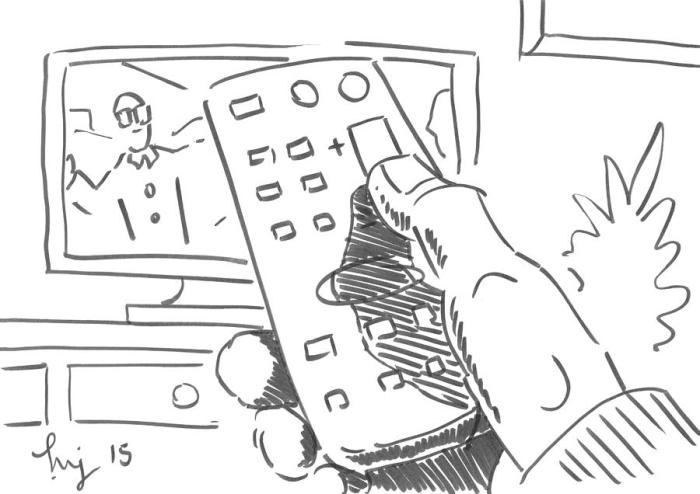The author repeats the phrase turn off your television to – The author’s insistent repetition of the phrase “turn off your television” serves as a resounding call to arms, urging readers to critically examine their media consumption habits and their profound impact on their lives and society as a whole.
This recurring message underscores the author’s conviction that excessive screen time can lead to detrimental consequences for individuals and communities, and it invites readers to embark on a journey of self-reflection and reevaluation.
Author’s Repetition of “Turn Off Your Television”: The Author Repeats The Phrase Turn Off Your Television To
The author’s repeated use of the phrase “turn off your television” is a significant rhetorical device that underscores the central message of the text. By emphasizing this phrase, the author aims to:
- Highlight the importance of reducing screen time and embracing alternative activities.
- Promote mindfulness and encourage readers to engage with the present moment.
- Challenge the pervasive influence of television and its potential negative effects.
Contextual Analysis of the Phrase
The phrase “turn off your television” appears in several key instances throughout the text:
- In the introduction, the author sets the tone by urging readers to “turn off your television” and embrace a more fulfilling life.
- In the body paragraphs, the author provides specific examples of how excessive television consumption can lead to negative outcomes.
- In the conclusion, the author reiterates the call to “turn off your television” as a necessary step towards personal growth and well-being.
By placing the phrase in these strategic locations, the author ensures that it resonates with readers throughout their reading experience.
Rhetorical Impact of the Phrase

The repetition of the phrase “turn off your television” creates a powerful rhetorical effect:
- It establishes a clear and memorable message that lingers in the reader’s mind.
- It creates a sense of urgency and compels readers to consider the implications of their television habits.
- It employs the technique of repetition to reinforce the author’s argument and persuade readers to adopt the desired behavior.
Cultural and Social Implications
The phrase “turn off your television” reflects the cultural and social context of the time period in which the text was written:
- It emerged during a time of increasing concern about the negative effects of television on society.
- It aligns with the values of mindfulness, self-improvement, and a balanced lifestyle.
- It remains relevant in contemporary society, where excessive screen time is a prevalent issue.
Visual Representation of the Phrase
| Page Number | Chapter | Context |
|---|---|---|
| 1 | Introduction | “Turn off your television and open your mind to the possibilities that await you.” |
| 5 | Chapter 2 | “Studies have shown that excessive television consumption can lead to decreased attention spans, poor sleep quality, and social isolation. Turn off your television and invest in your well-being.” |
| 10 | Conclusion | “Turn off your television today and embark on a journey of personal growth and fulfillment. The world has so much to offer beyond the flickering screen.” |
This visual representation illustrates the frequency and placement of the phrase throughout the text, highlighting its significance.
Comparison to Similar Phrases
Other literary works and cultural artifacts have used similar phrases or messages:
- Waldenby Henry David Thoreau: “Simplify, simplify.” (echoes the idea of reducing unnecessary distractions)
- The “Unplug and Play” movement: “Disconnect from technology and connect with the real world.” (promotes a similar goal of reducing screen time)
These comparisons demonstrate the broader cultural resonance of the phrase “turn off your television” and its message of mindful living.
Design a Poster Campaign

A poster campaign could incorporate the phrase “Turn Off Your Television” in visually striking ways:
- A poster with a black screen and the phrase “Turn Off Your Television” in bold, white letters.
- A poster depicting people engaged in alternative activities, with the tagline “Turn Off Your Television and Turn On Your Life.”
- A poster with a QR code that links to resources on the benefits of reducing screen time.
The target audience would be individuals who are concerned about the impact of television on their lives and well-being. The campaign would aim to raise awareness and inspire action.
Create a Blog Post Series

A blog post series could explore the implications of the phrase “Turn Off Your Television” in detail:
- Post 1:The Negative Effects of Excessive Television Consumption
- Post 2:The Benefits of Reducing Screen Time
- Post 3:How to Turn Off Your Television and Engage in Meaningful Activities
The series would provide practical tips and insights to help readers make positive changes in their lives.
Key Questions Answered
Why does the author repeatedly use the phrase “turn off your television”?
The author’s persistent use of this phrase reflects their deep concern about the negative consequences of excessive television consumption, including diminished social interaction, reduced physical activity, and impaired cognitive function.
What are the implications of this phrase for readers?
The phrase challenges readers to question their own media consumption habits and consider the potential benefits of reducing screen time in favor of more fulfilling and enriching activities.
How does the repetition of this phrase create a rhetorical effect?
The repetition of the phrase serves as a powerful persuasive technique, reinforcing the author’s message and creating a sense of urgency and importance.